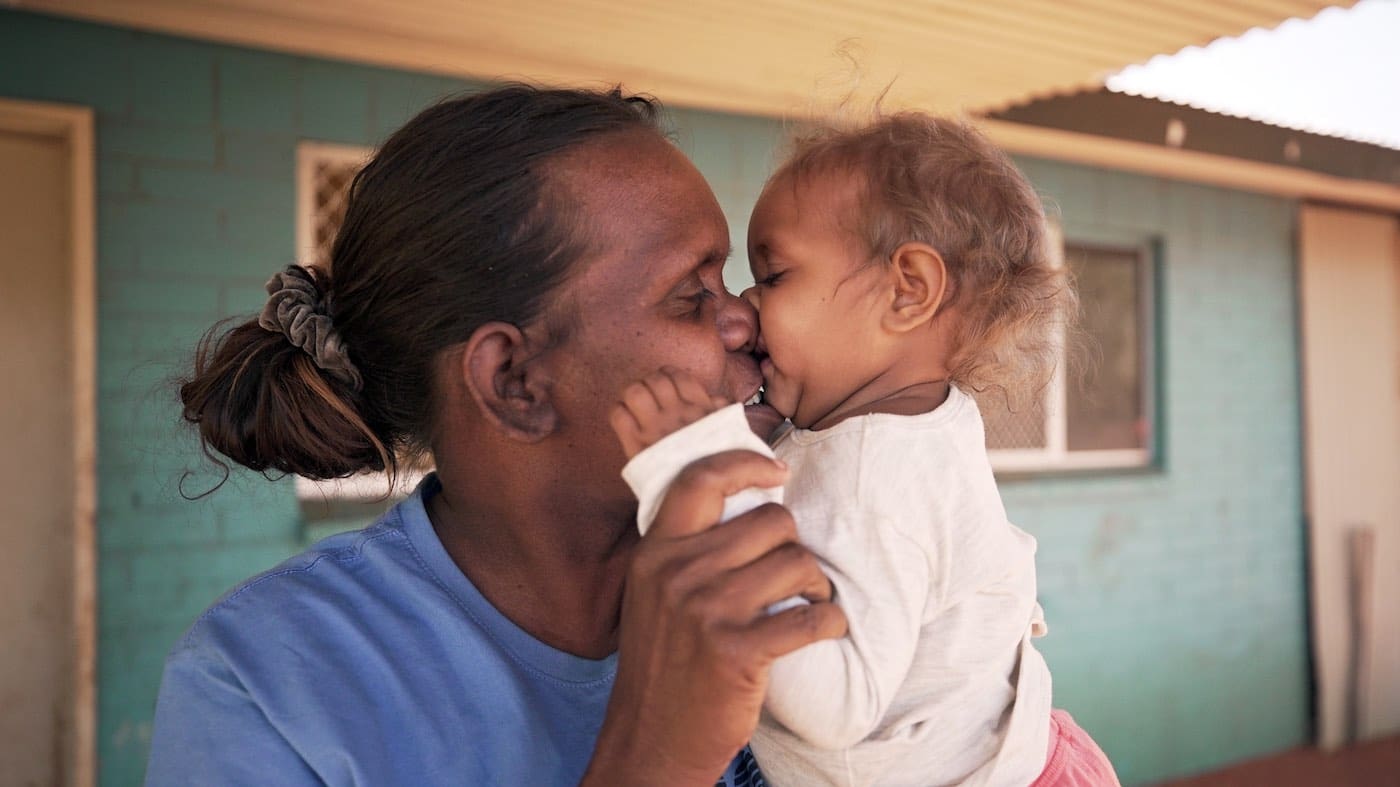Early Childhood – Aboriginal Families
The first five years of your child’s life make a big difference to the rest of their lives. During these years, your child’s brain and body are growing fast and the groundwork is being laid for their learning, health and well-being. During this time, you can teach your child healthy habits that can last.
Breastfeeding is really good for your baby’s health and well-being, and should be kept going for as much as a first year as possible. If breastfeeding isn’t possible or too hard, the alternative is formula feeding, which has the minerals, vitamins, and fats that your baby needs.
At four to six months of age, you can start introducing healthy solid foods, like mashed potato or baby rice cereal, mixed with breast milk or formula. Then move onto mash veggies and mash fruit, like ripe bananas and well cooked apples and pears. It’s best to talk to your doctor, nurse or health worker to find out what your child’s needs are as they grow, so you can feed them the food that’s best for them. And avoid feeding them unhealthy foods like juice, soft drink, and foods that are high in fat, salt and sugar. Serving size is also important too, so ask about the right serving sizes for your child as they grow.
Physical activity is so important for your child’s health, and if your child sees you exercising too, this will set a good example. Everyday, encourage physical activities that are appropriate for their age. This could be things like walking, jumping, running, chasing, playing with friends and cousins, riding bikes, climbing trees, using playground equipment, or helping you with even hanging out the washing. Television and computer screens are bad for our kids health, screen time is linked to getting fat and not exercising enough.
What’s the most important thing you can do for your kids? Apart from good food, reading to them every night makes a huge difference to their language, learning and brain development, and their ability to read when they get to school. It doesn’t have to be you who reads to them, it can be anyone. By spending time with your child and making them feel loved, safe, and secure, you’re giving them a great start in life. By spending time with your child and making them feel loved, safe, and secure, you’re giving them a great start in life. When your child is a baby, it’s great to cuddle them, talk to them and sing songs, hum and play music.
When your child’s around 2 1/2 to 3 1/2 years old, they might start throwing tantrums and telling you to go away. This is all normal, it’s part of growing up, they’re learning to be independent. This is a perfect opportunity to teach your child about their feelings and how to manage them. For example, if they’ve thrown a tantrum, help them relax, talk to them about why they’re upset. It’s important to help them understand why they’re upset. You can say something like, you’re angry but you shouldn’t hit your cousin. Never punish or hit your child when they’re upset and never put them down, swear at them or call them bad names. If you start feeling angry, just walk away until you calm down.
Raising a child can be hard at times, but there’s a lot of support out there, and many people that can help you. You aren’t alone, don’t be ashamed to ask for help. Your child is important to the whole community and we can all help them grow up strong, healthy and proud. The most important thing our children need is to feel loved, cared for and safe. There are some really good websites and apps you can use. The website raisingchildren.net.au has information about parenting for all stages of your child’s growth.
Further Help
There is an app and a website called Deadly Tots, with lots of information on how to help your baby learn and grow.





